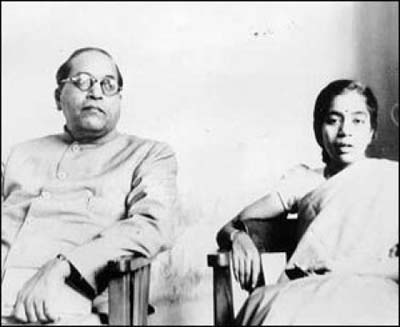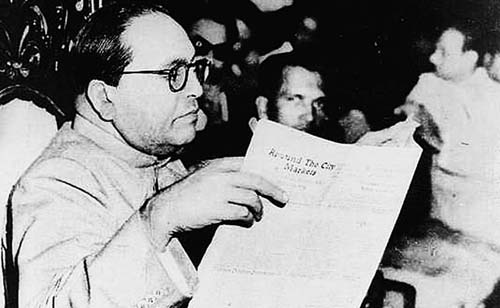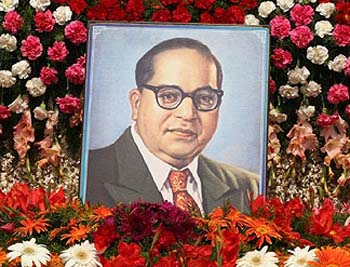
As a lawyer at the Bombay High Court, he tried to uplift the untouchables in order to educate them. His first organised attempt to achieve this was the Bahishkrit Hitakarini Sabha, which was intended to promote education and socio-economic improvement, as well as the welfare of "outcastes", at the time referred to as depressed classes.
By 1927 Ambedkar decided to launch active movements against untouchability. He began with public movements and marches to open up and share public drinking water resources.
He also began a struggle for the right to enter Hindu temples. In 1930, Ambedkar launched Kalaram Temple movement.
This was a non-violent movement for which he was preparing for three months.

About 15000 volunteers assembled at Kalaram Temple satygraha making one of the greatest processions of Nashik.
The procession was headed by a military band, a batch of scouts, women and men walked in discipline, order and determination to see the god for the first time. But when they reached to gate, the gates were closed by Brahmin authorities.
In 1936, he founded the Independent Labor Party. His party won 15 seats in 1937 elections to the Central Legislative Assembly.
Ambedkar objected to the decision of Congress and Mahatma Gandhi to call the untouchable community as Harijans. He would say that even the members of untouchable community are same as the other members of the society.

Ambedkar was appointed on the Defence Advisory Committee and the Viceroy's Executive Council as Minister for Labor. He was also made the first Law Minister and Chairman of the committee responsible to draft a constitution.
Ambedkar resigned from the cabinet in 1951 following the stalling in parliament of his draft of the Hindu Code Bill, which sought to expound gender equality in the laws of inheritance and marriage.
According to him, it would be difficult to maintain the unity of the country if the difference among the classes were not met.
Ambedkar opposed Article 370 in the Constitution, which gives a special status to the State of Jammu and Kashmir.

In 1950, Ambedkar traveled to Sri Lanka to attend a convention of Buddhist scholars and monks. After his return, he decided to write a book on Buddhism and soon, converted to Buddhism. In his speeches, Ambedkar lambasted the Hindu rituals and caste division.
Ambedkar founded the Bharatiya Bauddha Mahasabha. Post death, his book "The Buddha and His Dhamma" was published.
Ambedkar condemned child marriage and mistreatment of women. He advocated the birth control rate to develop the Indian economy which is being followed by the government. The Reserve Bank of India (RBI), was based on the ideas that Ambedkar presented to the Hilton Young Commission.
Dr Ambedkar was suffering from diabetes and weak eyesight. Day by day, his health deteriorated. On December 6, 1956 he breathed his last. He was cremated as per Buddhist rituals. The ceremony was attended by of thousands of supporters and admirers.
Ambedkar was survived by his second wife, who died in 2003 and his son Yashwant (known as Bhaiyasaheb Ambedkar). Ambedkar's grandson, Ambedkar Prakash Yashwant, is the chief-adviser of the Buddhist Society of India, leads the Bharipa Bahujan Mahasangh and has served in both houses of the Indian Parliament.

























